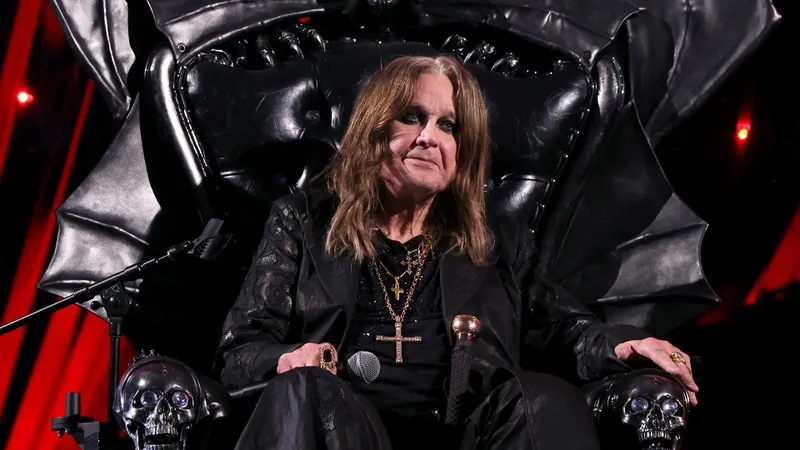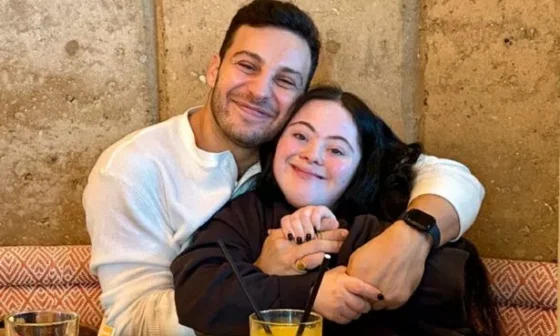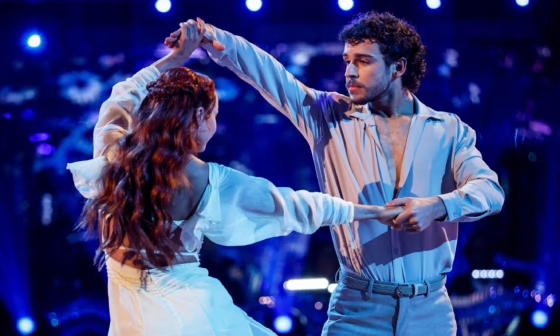Some moments in rock ‘n’ roll go beyond music. They become something more—something personal, sacred, unforgettable. For Ozzy Osbourne, that moment came when he took the stage one last time and sang “Mama, I’m Coming Home.”
It wasn’t just a performance. It was a goodbye. A lifetime of chaos, pain, love, and redemption distilled into a single song that silenced tens of thousands and left many in tears.
This wasn’t the Prince of Darkness. This was John Michael Osbourne—raw, human, and finally at peace.

A Song Forged in Struggle
Released in 1991, “Mama, I’m Coming Home” wasn’t written for a mother—it was written for Sharon Osbourne, Ozzy’s wife, manager, and lifelong anchor. Through decades of addiction, near-death experiences, arrests, and breakdowns, Sharon never left his side. She became the steady hand behind the storm, the one person who always believed there was still something worth saving.
The song was Ozzy’s tribute to her. Not a rock anthem, but a weary man’s love letter.
“I’ve seen your face a hundred times, every day we’ve been apart,” he once sang—not with anger or flash, but with aching sincerity.
It was never just a hit single. It was an apology. A confession. A homecoming.
The Man Behind the Madness
Ozzy was born into poverty in Birmingham, England. Before he was a legend, he was a kid in trouble—broke, arrested, and seemingly headed nowhere. Then came Black Sabbath, and with it, immortality.
But success didn’t save him. Addiction nearly destroyed him. He was fired from his own band. He lost years, friendships, and nearly his life in the fog of drugs and alcohol.
Yet, through it all, he survived—fueled by a fierce will and Sharon’s unwavering belief in him.

The Final Goodbye
At his farewell show, the years were visible in every step. Ozzy stood under the lights, no longer the untouchable icon of the ’80s, but a man weathered by life and illness. Parkinson’s disease, surgeries, and time had taken their toll.
But when the opening chords of “Mama, I’m Coming Home” rang out, time stopped.
Dressed in black, his voice cracking with emotion, Ozzy didn’t sing with power—he sang with truth. Every lyric felt like a final chapter being read aloud. The crowd, once roaring, went still. Some held their breath. Others wept.
“You took me in and you drove me out… yeah, you had me hypnotized…”
This was not just a song. This was a reckoning. A goodbye to the stage, to the chaos, and to a version of himself he was finally ready to leave behind.
As the final chorus echoed—“Mama, I’m coming home”—Ozzy looked out over the crowd with tears in his eyes. And we knew: this wasn’t just about returning to Sharon. This was about returning to who he truly was.
A Legacy Carved in Pain and Power
In that moment, Ozzy wasn’t a rock god. He was a man. Flawed. Fragile. Grateful. And that’s what made it unforgettable.
Because behind the wild antics, the bat-biting headlines, and the heavy metal growl, Ozzy Osbourne was always just trying to find his way home.
This final performance wasn’t just a concert—it was a closing chapter to one of the most chaotic and compelling stories in music history.
If you haven’t watched it yet—don’t wait. Let it move you. Let it remind you that even the loudest legends can say the most with a whisper.
Because sometimes, the most powerful goodbye isn’t a scream.
It’s a soft, trembling voice saying, “I’m coming home.”






